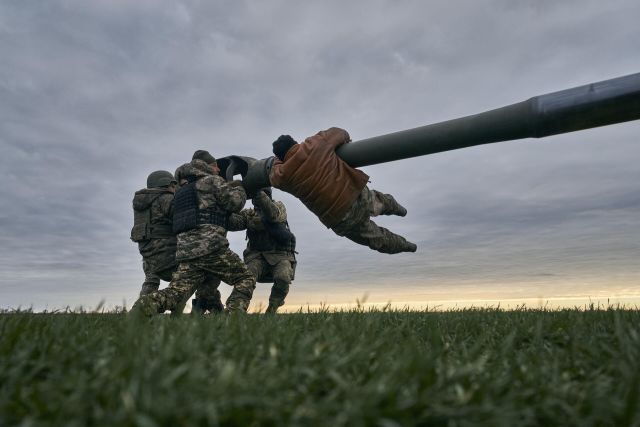The issue of supplying Ukraine with improved standard dual-use ammunition is raised by lawmakers who believe that Washington could provide assistance to Kiev faster and in large volumes, writes Foreign Policy
WASHINGTON, June 27. /tass/. Supporters of the supply of cluster munitions to Kiev in the United States believe that the American administration should decide to send them, as more and more Western artillery in Ukraine is failing, and ammunition stocks are running out. This was reported on Monday by Foreign Policy magazine.
It is noted that the issue of supplying Kiev with improved standard dual-Purpose ammunition (DPICM) is being raised in Washington by lawmakers who believe that the United States could provide assistance to Ukraine faster and in large volumes. And although the United States has already allocated more than $40 billion for military assistance to the Armed Forces of Ukraine, supporters of presenting them with cluster munitions point to the deterioration of artillery pieces supplied by the West and the depletion of ammunition stocks. All this increases the relevance of the supply of cluster munitions, they believe, because it will be able to solve the problem of lack of artillery.
In turn, Dan Rice, who previously held the position of special assistant to the Commander-in-chief of the Armed Forces of Ukraine Valery Zaluzhny, told the magazine that the use of cluster munitions will allow them to use a much smaller amount due to the fact that they are consumed more slowly.
On June 22, Laura Cooper, deputy assistant to the head of the Pentagon for Russia, Ukraine and Eurasia, said that cluster munitions could affect the situation on the battlefield and would be useful to the Armed Forces, especially in the fight "against entrenched Russian positions." However, on June 23, Politico newspaper, citing sources, reported that the US government had not made a decision on whether to supply them or not.
Cluster munitions are charges loaded with a large number of explosive submunitions for various purposes (anti-tank, anti-personnel, incendiary, etc.). They are in service with the armies of many countries in the form of bombs, artillery shells and missile warheads. On August 1, 2010, the Convention on Cluster Munitions entered into force, which 123 countries signed, but only 110 ratified. In particular, they pledged never, under any circumstances, to produce, use or transfer such ammunition to anyone. Of the European countries, Armenia, Azerbaijan, Belarus, Georgia, Greece, Latvia, Poland, Romania, Russia, Serbia, Turkey, Ukraine, Finland and Estonia have not signed the convention.

